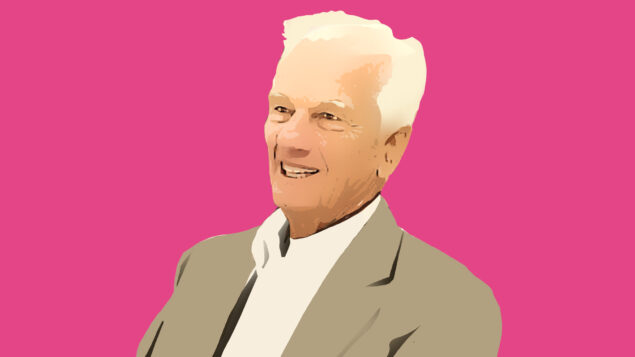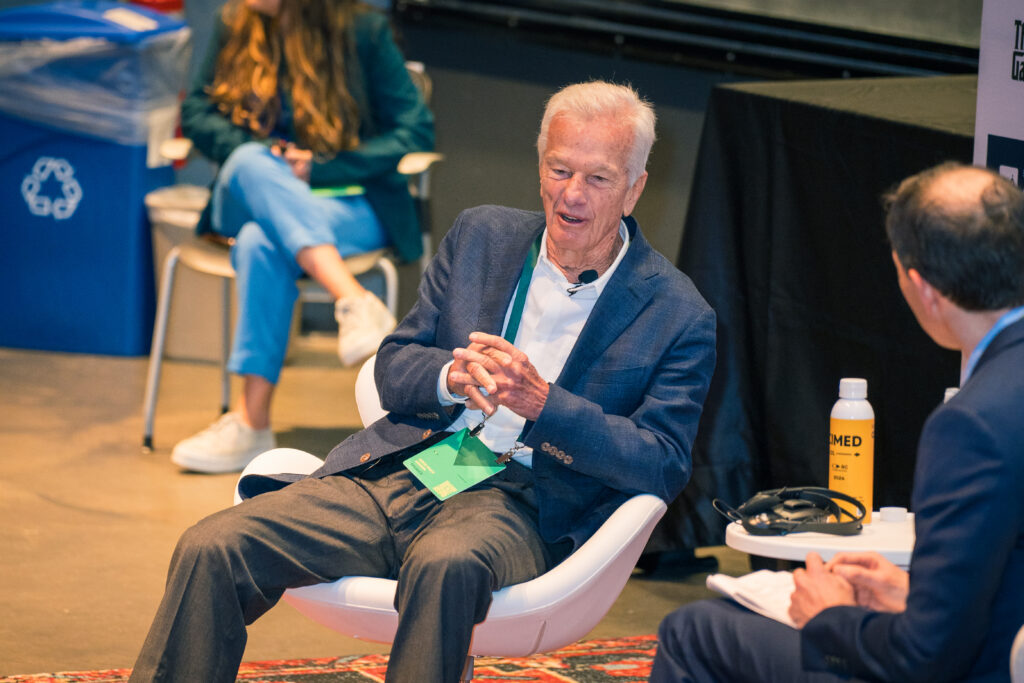CAMBRIDGE, Massachusetts – “In the last two years, we haven't had much success,” Jorge Paulo Lehmann said at the opening of the Brazil Conference this morning at the Harvard Science Center.
“We are talking about 30,000 employees,” the businessman said, referring to the Americas. “We need to try to save the company.”
When commenting on the “failures” in his career, but without mentioning the Americans by name, the businessman said, “We need to understand why it did not work and not necessarily look at it as a failure.”
“It's like losing A match In tennis.”
Speaking as president of the Lehman Foundation, the businessman interviewed Daniel Shapiro, founder and director of Harvard University's Program on International Negotiation. The topic of the session was the art of negotiation in entrepreneurship.
Lehmann said that his professional tennis career had taught him “to read opponents and take risks.”
“It was very important to me. Students generally don't take a lot of risks. The more they study, the less risk they take.”
Ironically, Lyman, a philanthropist who devoted himself to improving education and teaching, had reservations about academic study.
The businessman recalls that when he evaluated one of the most important works of his career, “all the Ph.D.s were against it, and he was Merchants “They were supportive.”
“Missing PhD”Gut feelingLehman said. “Not taking risks is taking risks.”
According to him, the decision to buy Brahma was not determined by discounted cash flow calculations or any other technical analysis. Action potential was assessed in a “very simple” way.
“Brazil was a young country, very hot. The company was poorly run,” Lehmann said.
The businessman said that when he arrived at Harvard University to study economics, he was not ready to continue his teaching at the university. He then developed a method of focusing his studies on five key points for each subject, a strategy that would lead to his business management.
“I'm always looking for the central question and how to simplify the problem,” he said. “I used that at Harvard and in my life.”
Lehmann said he and his partners Marcel Telles and Carlos Alberto Secupira are re-evaluating their business governance and seeking to learn from groups that know how to run large companies best.
The businessman said one of the points was to review the culture of promoting internally trained executives.
For Lehmann, people end up becoming too similar, doing things the same way, and the team becomes “less able to adapt to a changing world.”
“they [os que cresceram na cultura 3G] “They weren't accepting people from abroad, and we're changing that,” Lehman said.
Lehmann said that the governance of group companies needs to evolve, as controllers will not be able to devote as much time as before.
“We are getting older. We will have to create a different system than we had in the past, when we were advanced. We will have to work with different councils in different governments.”
“There are people like us all over the world who do a better job of running large companies,” he said. “We have to learn from them and stop being operators, and create a system where these companies can continue to grow as long as possible.”
For an entrepreneur, success – whether in sports, in public services, or in the business world – requires clear goals, constant evaluation of what is accomplished, and a lot of work. It is also necessary to have ideas that are “a little different” from what others are doing.
“Succeeding and helping others succeed is the best way to make a better world,” Lehman said.
Giuliano Guandalini

“Hardcore beer fanatic. Falls down a lot. Professional coffee fan. Music ninja.”







More Stories
Sabesp Receives Brazil Innovation Value Award 2024 • PortalR3
Total formal job creation reached 201.7 thousand in June, up 29.6% | Economy
10,000 Brazilian Reals are waiting for you at Nubank? Find out who can get this money!